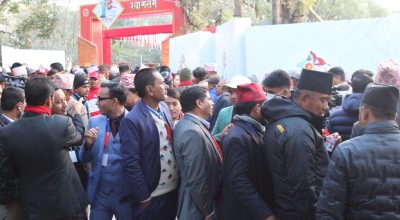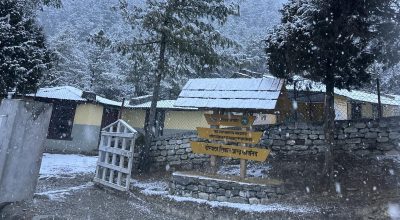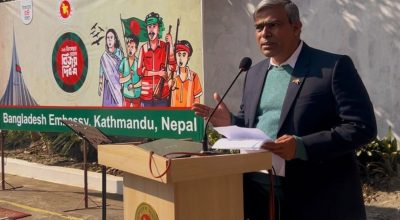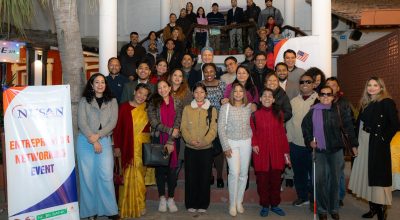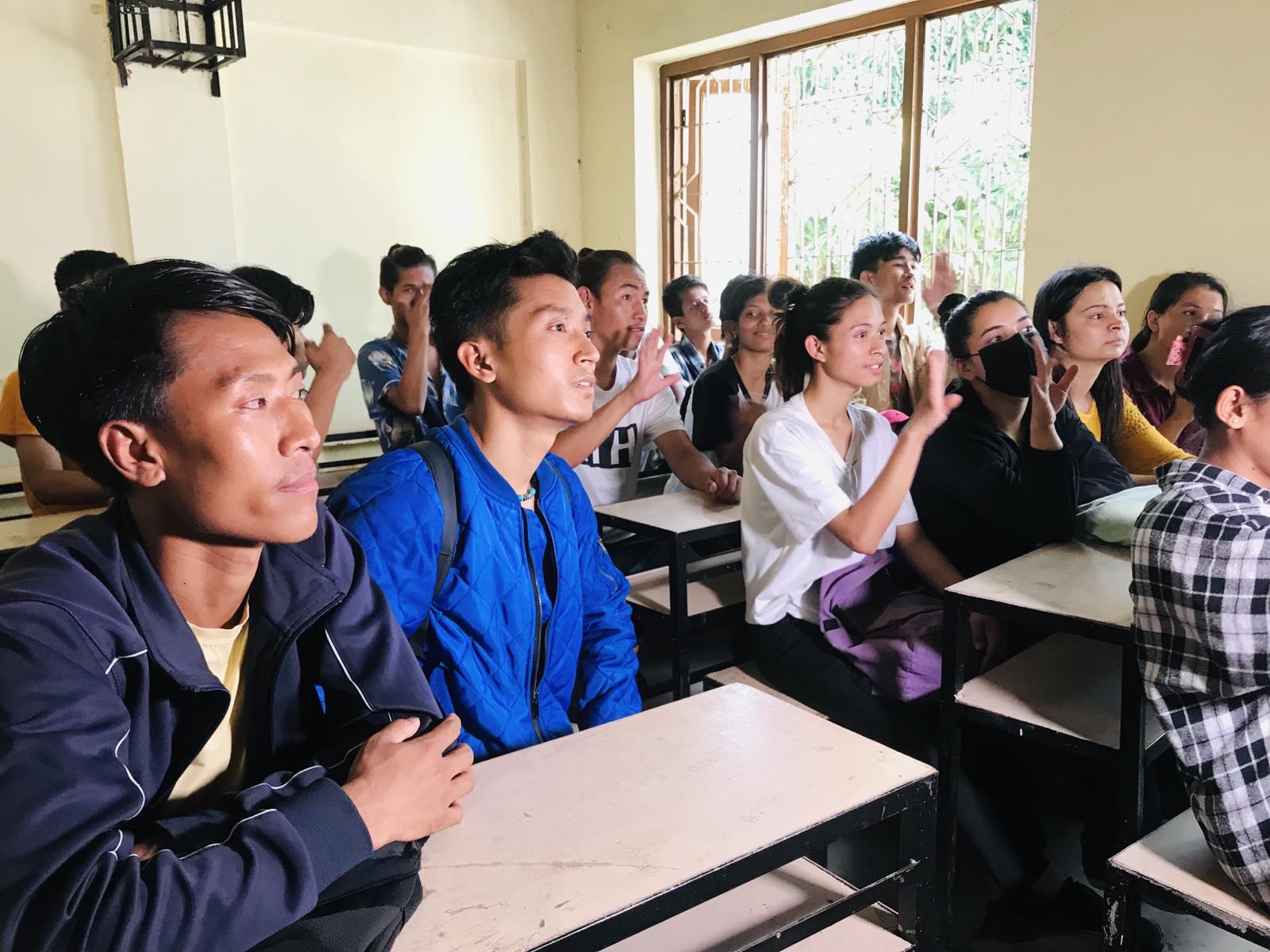
Kathmandu, June 29 : The Central Campus for the Deaf in Naxal, Kathmandu, the only college of the country providing higher education to the people with hearing loss, has produced many skilled workforces over the years. Being affiliated with the Tribhuvan University in 2070 BS, 41 of the total 359 enrollments have been graduated from the non-profitable community campus as of now. It launched the three-year B Ed programme from 2069 to 2072 BS, and is now running four-year B Ed programme since 2073 BS.
However, it is now struggling without the required budget. Being dependent on around Rs 1.5 million provided by the University Grants Commission, the only income source for the college, the amount is not enough to run it the whole year, said the campus chief Rishiram Devkota. The Commission has also provided scholarships worth Rs 12,000 per student annually.
The educational institution has a plan of building infrastructures to develop it as an international standard university for the deaf. It also plans to carry out a research regarding principles, methods and teaching and learning materials to create an environment conducive wherein hearing impaired people get access to learning and teaching activities by developing curriculums friendly with deaf people. It is also in need of a bus to pick up and drop students, and a library.
Plan is afoot to cooperate to launch a project to develop Nepali sign language and modernise it, and to provide access to the international sign language, said Devkota.
But, there lacks funds to implement these plans, he said. “Forget the execution of these plans. We lack budget even to properly run the college.”
The college is not able to run other streams without budget, he said. Now, being run from the building of the Central Secondary School for the Deaf, Naxal, by paying the rent, it wants to construct a building with boarding facility in its own land. But, there is no budget for that, he lamented.
The campus has been providing free classes to deaf people through sign language. It has five teachers. Narayan Bhakta Shrestha is chairperson of its board of directors while there is a provision that a representative of the Tribhuvan University, the ward chair of Kathmandu Metropolitan City-1, and a representative of the National Federation of the Deaf Nepal (NDFN) are ex-officio members. The university has waived registration and examination fees for the students.
“Funds provided by the University Grants Commission do not cover minimum salary to the campus staffs,” said Devkota.
The college since its establishment was being run with donation given voluntarily by the office bearers of the ad-hoc committee, parents and students, and with economic and physical assistances provided by then Triveni Development Bank and Janata Development Bank for four consecutive years.
The campus board of director’s member Meghnath Neupane provided stationery and educational materials.
The Ministry of Education, Science and Technology is expected to provide assistances to the college. “We have not sought help from private national and international organisations as we want the Government of Nepal to be our guardian,” he said.
The college has managed evening classes for those people who work during day and morning, he said.
Lack of training for teachers teaching sign language to people with hearing loss has had its impact, said the campus lecturer Sita Ghimire. There are more than 5,000 vocabularies in sign language and it is difficult to communicate with deaf students, she said.
Students at the college have also faced difficulties without trained teachers. Punam Khadka, who is pursuing her first year in B Ed, said she could not attempt all questions in the examination for want of enough time, as the prescribed time is the same for them and normal students. It is also difficult for them to acquire teacher’s licence as well, she said.
The government has made arrangements for separate examinations and evaluation system based on the poverty, geographical difficulties and severity of persons with disabilities so as to provide education along with boarding facilities for them, and for building disabled people friendly educational materials, school buildings and physical structures.
Similarly, the Act relating to Rights of Persons with Disabilities and the related Regulations, 2077 BS have guaranteed scholarship up to the Bachelor’s level for children of hearing impaired parents. The Education Act, 2028 BS, the Education Rules, 2059 BS and the Act relating to Compulsory and Free Education, 2075 BS have guaranteed facilitation in providing learning activities to people with hearing loss, that are adaptable with the curriculum suitable for their learning needs, and educational activities.
However, their lax implementation has made the matter worse, said the NDFN. The NDFN has been demanding that people with hearing loss be provided with education through their medium language, and the availability of substantial vocabulary and grammar in sign language. It has also demanded a school for hearing impaired people for a district. Other demands include the management of interpreters for them in mainstream universities and their welcome and acceptance by them, the creation of environment conducive for helping them learn, the development of inclusive culture, and access to technical and vocational education for them.
There are six schools providing classes up to plus two for people with hearing loss. These schools include the Central Secondary School for the Deaf, Naxal, Kathmandu, and others each in Sindhuli, Kaski, Baglung, Morang and Jhapa districts. According to the latest census, there is 2.25 percent population of hearing impaired people in Nepal.
Nepali sign language dictionary was published in 2003, and the integrated form of its first, second and third editions has been published with support from the Embassy of the United Kingdom. RSS





